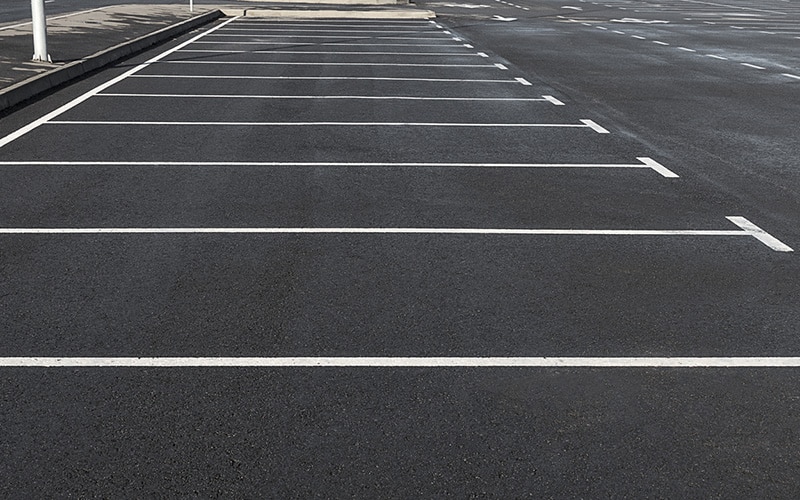Enhance Longevity: Warm Mix Asphalt Sealing for Angled Parking Frameworks
Enhance Longevity: Warm Mix Asphalt Sealing for Angled Parking Frameworks
Blog Article
Warm Mix Asphalt: A Sustainable Service for Sidewalk
Warm Mix Asphalt (HMA) has arised as a leading sustainable option for pavement remedies, providing a myriad of ecological benefits and cutting-edge modern technologies. As the need for environment-friendly construction practices grows, discovering the nuances of HMA's sustainability can offer important understandings right into the future of sidewalk services.
Ecological Advantages of Warm Mix Asphalt

Furthermore, Warm Mix Asphalt helps to reduce city warm island impacts. Its dark color takes in sunshine, lowering the quantity of warm reflected back right into the ambience contrasted to lighter-colored pavements. This can lower ambient temperature levels in metropolitan locations, reducing the need for air conditioning and ultimately reducing power usage.
Furthermore, Warm Mix Asphalt adds to enhanced stormwater management. Its permeable nature allows water to infiltrate the pavement and reenergize groundwater materials, decreasing drainage and the danger of flooding. These ecological benefits make Hot Mix Asphalt a sustainable option for leading roads and freeways.
Energy Effectiveness in HMA Production
Is power efficiency an essential consider the manufacturing of Hot Mix Asphalt (HMA)? Definitely. Power plays a substantial function in the manufacturing of HMA, affecting both price and ecological sustainability. One key element of energy performance in HMA manufacturing is making use of warm mix asphalt (WMA) technologies (angled parking). WMA allows for the blending and positioning of asphalt at reduced temperatures contrasted to standard hot mix asphalt, leading to minimized power consumption throughout manufacturing. This procedure not just lowers gas use but also decreases greenhouse gas exhausts, making it a more eco pleasant option.
In addition, improvements in plant innovations have led to even more energy-efficient HMA production procedures. By maximizing energy use in HMA production, the industry can minimize its carbon impact while preserving high-grade sidewalk products.
Recyclability of Hot Mix Asphalt
The recyclability of Hot Mix Asphalt (HMA) is a critical facet of its sustainability and long-lasting environmental effect. HMA is just one of the most recycled materials in the United States, with over 100 million lots of redeemed asphalt pavement (RAP) being reused every year in brand-new pavement building. Reusing HMA offers several ecological benefits, such as decreasing the need for virgin materials, decreasing energy intake throughout manufacturing, and visit the site lowering the amount of waste sent to landfills.
The procedure of recycling HMA entails milling the existing pavement, squashing it into smaller sized items, and mixing it with brand-new aggregate and asphalt binder to produce a recycled mix. Generally, the recyclability of HMA plays a significant duty in advertising lasting techniques within the sidewalk market.

Long-Term Performance of HMA
Asphalt pavements demonstrate sturdiness and durability over an extended duration, mirroring the long-term efficiency of Warm Mix Asphalt (HMA) Furthermore, innovations in HMA technology, such as the usage of polymer-modified binders and cozy mix asphalt, have actually even more improved the sturdiness and durability of HMA sidewalks. By focusing on high quality construction and maintenance practices, HMA continues to prove itself as a sustainable and cost-effective service for resilient sidewalk facilities.

HMA: Sturdiness and Sustainability
Demonstrating both durability and sustainability, Hot Mix Asphalt (HMA) has actually ended up being a keystone in the construction of resilient pavement infrastructures - commercial parking lot paving. HMA's resilience stems from its ability to withstand heavy loads, rough climate conditions, and high website traffic volumes, making it a reliable selection for roads, internet highways, and flight terminal paths. The structure of HMA, which usually includes accumulations, binder, and filler, plays a critical duty in boosting its longevity and resistance to wear and tear
Moreover, HMA's sustainability hinges on its recyclability and energy-efficient production process. The capacity to recycle reclaimed asphalt sidewalk (RAP) in brand-new HMA mixes reduces the need for virgin materials and reduces the ecological effect of sidewalk building and construction and maintenance. Additionally, the power effectiveness of generating HMA depends on its reduced blending temperatures contrasted to various other pavement products, leading to decreased energy usage and greenhouse gas emissions.
Conclusion
In verdict, hot mix asphalt (HMA) offers a sustainable service for sidewalk with its eco-friendly attributes. HMA's recyclability, energy effectiveness right here in production, and long-term resilience make it an environmentally friendly option for roadway building and construction. By conserving all-natural sources, decreasing waste, and decreasing greenhouse gas discharges, HMA plays a vital role in promoting sustainability in framework development. Its capacity to alleviate metropolitan warmth island effects additionally emphasizes its value in producing ecologically conscious and resilient sidewalk systems.
HMA is one of the most recycled products in the United States, with over 100 million loads of reclaimed asphalt sidewalk (RAP) being recycled yearly in new sidewalk building and construction.The process of recycling HMA entails grating the existing pavement, crushing it right into smaller pieces, and blending it with new aggregate and asphalt binder to produce a recycled mix.Asphalt pavements demonstrate resilience and durability over an extended duration, showing the long-term performance of Warm Mix Asphalt (HMA) In addition, improvements in HMA modern technology, such as the usage of polymer-modified binders and cozy mix asphalt, have further enhanced the sturdiness and durability of HMA pavements. The ability to reuse recovered asphalt sidewalk (RAP) in brand-new HMA combinations lowers the demand for virgin materials and lessens the ecological effect of pavement building and construction and upkeep.
Report this page